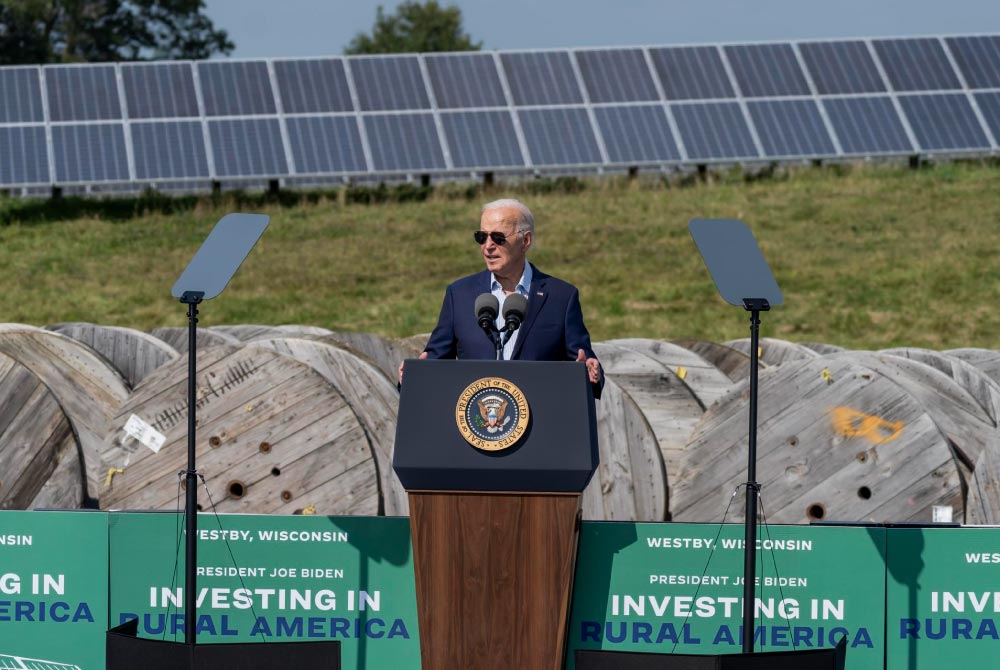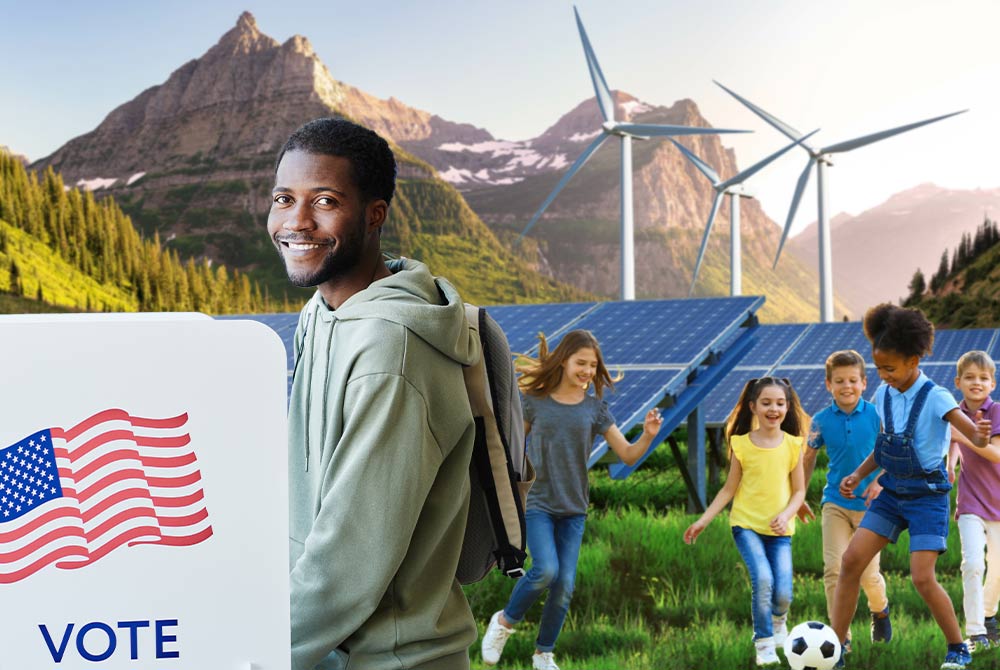
Top 5 Stories Worth Reading — December 2024
Dec 18, 2024
Help LCV respond to threats to our communities and our climate in 2025 Give Now

As this year’s election looms, there has never been a more important time to ensure our democracy, voting rights, and access to the ballot are protected around the country. States are at the frontline for attacks against democratic values, and we know so much of the work to ensure we all have equal rights and access happens at the state and local level. We cannot have a healthy environment without a thriving democracy.
Below, we’ve compiled some of the biggest 2024 state wins so far that will strengthen our democracy and fight attacks on voting rights and fair elections. Our state affiliated partners played crucial roles in making each of these victories possible.
Conservation Minnesota Voter Center supported the passage of the landmark Minnesota Voting Rights Act, which provides legal remedies for racial discrimination and voter suppression, ensuring that everyone gets an equal opportunity to vote.
This follows last year’s successful passage of Connecticut’s Voting Rights Act, championed by the Connecticut League of Conservation Voters, while our state affiliates in New Jersey and Michigan continue to push for passage of their own before the end of the year. These reforms create a strong model for voter equity across the nation, and demonstrate a rising public desire for nationwide protections after decades under the conservative extremist-packed U.S. Supreme Court that stripped the protections of the federal Voting Rights Act of 1965.
Maine Conservation Voters (MCV) was essential to the passage of the National Popular Vote Bill after hosting an event to educate voters and legislators about the effort to move away from the electoral college and elect a president based on the national popular vote. MCV sent a recording of this event to key legislators, with at least one reporting that the video was so compelling, he changed his vote to support the National Popular Vote.
The Rural Utah Project (RUP) continued their yearly fight to defend mail-in voting by blocking dozens of bills threatening to derail Utah’s most popular way to vote. 94% of Utahns vote-by-mail, yet legislators introduced bills that would bar many from using mail-in voting. RUP led the launch of Let Utah Vote Coalition Save Vote-By-Mail petition, which gained 5,000 signatures and mobilized over 100 activists to oppose the bill through public testimony at the legislature. Through their efforts, RUP successfully prevented any of the bills from making it back onto the agenda.
For decades Nebraska has split its electoral college votes by district rather than a full winner-take-all approach. Nebraska Conservation Voters Executive Director and Nebraska State Senator Eliot Bostar led the effort to successfully block a Trump-backed effort to give all of the state’s electoral votes to him as the likely winner. While the initial threat of this has subsided, there could still be a special session before the election.
Nebraska also passed major legislation to restore voting rights to people upon completion of a felon sentence or probation for a felony. NCV worked behind the scenes to help pass LB 20, a huge win for voting rights – many Nebraskans will soon have their rights restored automatically. While the governor declined to sign the bill, it will still go into effect pending decisions before state courts.
Virginia stopped several measures to reduce access to the ballot. Virginia League of Conservation Voters (VALCV) joined efforts to shut down a slew of bills that would have obstructed Virginians from voting, including measures requiring Photo-ID and limiting the window for absentee and early in-person voting.
VALCV celebrated passage of a bill rejoining the state to the Electronic Registration Information Center (ERIC), a bipartisan initiative to ensure voter rolls are accurate and secure across state lines. However, Governor Youngkin vetoed the bill, buying into disinformation about Big Lie conspiracies.
After years of gerrymandered maps that drastically skewed state legislative maps, Wisconsin and Michigan both redrew their state’s districts to become much more fair and reflective of each state’s whole population. 2024 will be the first year the new maps have been in place and will be the first time we will see how this changes the political makeup of each state legislature. Both Wisconsin Conservation Voters and Michigan Conservation Voters worked tirelessly alongside state allies for years to make fair maps a top priority.
Weapons are now banned near polling stations across New Mexico. This is thanks to dedicated democracy coalitions led in part by Conservation Voters of New Mexico who wanted to take on any armed forms of voter intimidation. Conservation Voters for Idaho also worked to diminish intimidation at polling places by helping pass legislation to expand the distance you can electioneer near a designated polling place. Both states also worked to curtail the use of AI and deep fakes in election materials in what should be a national model for protecting against voter deception and misinformation.
In a state with all mail-in-voting, curing can be crucial for close elections. Often minority names are not cured in the same way as other voters, especially when there are language and access barriers to follow up. Washington Conservation Action, alongside partners across the state, worked to improve voter equity by helping to pass ballot curing policies to ensure that all minority voters’ voices are heard.